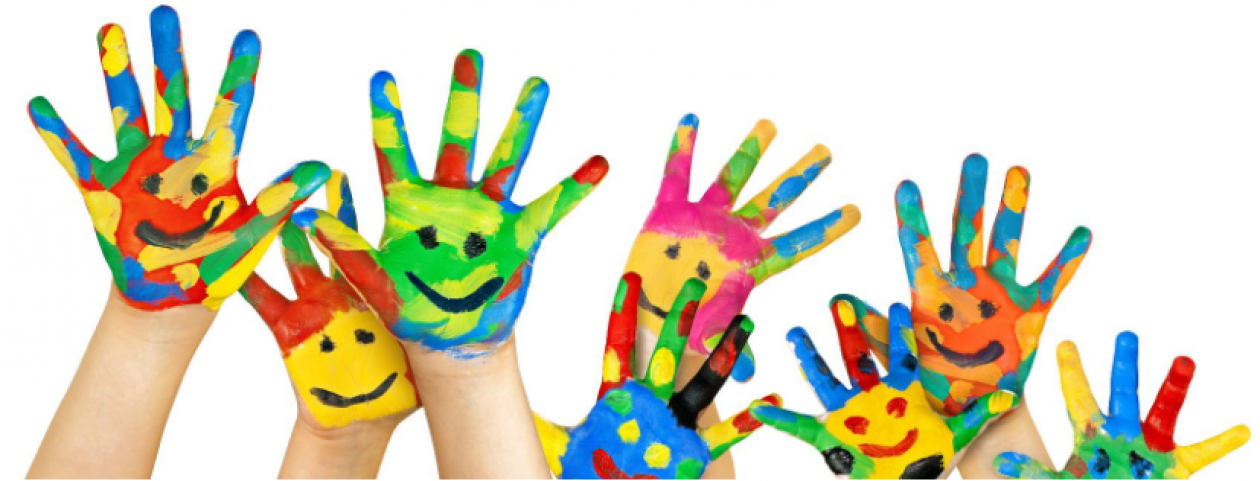Daily Doodle for today.
All posts by Mrs Findlay
Daily Doodle
Here is today’s Daily Doodle
Paint with String
This is a different way to paint and lets children explore and do things their own way.
What you need:
• Paint
• String
• Scissors
• Paper
What to do:
1. Cut short lengths of string and fill up
painting pots with various colours of
paint.
2. Make sure your wee ones are properly
covered up – it’s about to get messy!
3. Some children might try pressing down
with the string. Others might drag it
across the paper or use it as a tiny paint
brush. Whatever it is, they’ll explore new
ways to make marks and use their own imagination. You will have a wee masterpiece when they are finished!
Let there be Light!
A plastic jar filled with fairy lights can be an utterly
fascinating resource for babies and toddlers alike.
What you need:
• A plastic jar
• A string of battery fairy lights
What to do:
1. Take the fairy lights and put them inside
the jar. It’s helpful if they’re battery or solar
powered because you obviously can’t
have them plugged in.
2. Screw the lid on tight.
3. Allow your wee ones to explore
the jar with all of their senses. They can
stare at it, roll it, or bang it.
POM POM DROP!
This is a fantastic activity which helps your wee ones begin to understand how things can disappear and come back which
is central to early mathematical development. It is also a fun activity for all the family to enjoy.
What you need:
• Paper roll tube
• Craft pom poms
• Tape (masking tape preferably)
• A container
What to do:
1. Tape the tube to the wall and show how
the pom pom can travel down the tube
when you put it in at the top, collecting
at the bottom.
2. This is great demonstrating cause
and effect and will also develop their fine
motor skills, and should be fascinating.
3. Some wee ones just want to
pull the tube off the wall, park the game
for a bit and try it again in a few months.
4. Extend the activity by showing them
what happens when you tilt the tube instead
(of course, it’s going to change the
speed) and try to set up a slightly more
complicated run of toilet tubes.
Daily Doodle
Daily Doodle is here!
Measure with Duplo
This great guessing game gives your wee ones a chance to test out
their predictive skills using this classic resource.
• Duplo blocks
• LEGO blocks
• Things to measure
What to do:
1. Start the game off by getting your wee one
to measure one of their favourite
toys. How many pieces long was it?
2. This is your starting off point for lots
of fun with open-ended questions and
experimenting. Ask questions like ’Do
you think this will be more or fewer
LEGO blocks long?’, ’Are you taller or
shorter than these two things?’ and so
on.
3. For younger children, this is a great
activity for teaching early counting skills.
For example, you could tap each of the
LEGO blocks in turn while counting, helping
to teach them that units correspond
to numbers and that each number has a
name.
4. For older children, you can even
see if they can guess exactly how many
bricks it will be, and build up the tension
as you make the measurement!
Creative Community
Create your own mini version of your local area, it is
the perfect way to get your wee ones talking about the people
and communities around their home.
What you need:
• A spare table or floor space
• Some coloured sheeting or paper
• Toy buildings and vehicles, children could create their own
• Mini figurines or objects the children choose
What to do:
1. This is a great activity to work on together and while doing so your children can happily talk and learn about their community.
2. You can build up a central
road, with buildings and vehicles dotted
around. These could be toys or even local
buildings printed from google maps and
then laminated and stuck to bits of board. Or if easier draw your own.
3. Your wee ones can also make or customise
mini-me figurines which they can move
around the town.
4. It’s perfect for endless discussion on
children’s knowledge of people and communities,
like ’Me and daddy Home Bargains to buy colouring things’.
5. You can also consider changing or adding
buildings after a trip to keep it at the top
of your wee ones minds.
Sow some Seeds
Planting seeds is great for fine motor control and
even better to help your wee ones learn about the natural world
around them.
What you need:
• Seeds
• Pots
• Water
• Compost
• Spoons
What to do:
1. Start by picking out your seeds.
Sunflowers, and sweet peas work well at
the start of spring, as well as nasturtiums
and calendula for attracting pollinating
bees and butterflies.
2. All you need to do is fill a
pot with compost, water it, and pop
the seeds in an inch or so down using a
spoon. You can reuse some shop-bought
starter pots or use old cartons, egg boxes
or old fruit peel.
3. Keep the packets! They’ll be packed full
of information that you can discuss with
your wee one such as what conditions
work best for the plants, the differences
between different plants and why some
will flower sooner than others.
Daily Doodle
Daily Doodle for today!











